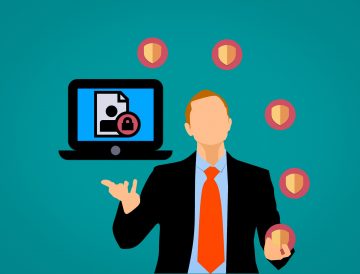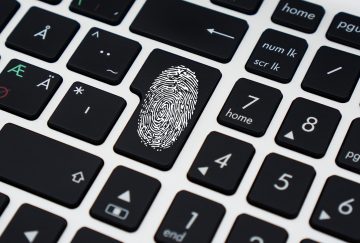Top 4 Tips to Protect Your Cybersecurity During Summer Vacation

Why do people go on vacations? They do it to recharge their proverbial batteries and to pick up some good memories. Few people realize, however, that lapses in their digital security habits could turn a summer holiday into a stress-filled nightmare. Today, we're going to take a look at some of the things you can do to make sure that this doesn't happen.
Table of Contents
Free Wi-Fi could turn out to be very expensive
You've probably heard this advice before, but you might be wondering why cybersecurity experts are so adamant that you shouldn't use the free hotel or café wireless network. The reason is fairly simple. Wi-Fi networks that are not protected by a password don't encrypt the information coming and going to your device. This means that if the person sitting on the table next to you knows what they're doing, they can easily intercept your username, password, and any other sensitive information you enter. Even if the network does have a password, you should still check which protocol it uses, and if it's too old, you might want to stay away.
In fairness, if the security of your device is good enough, using a free wireless network for trivial stuff like catching up with the news or wasting time on YouTube is unlikely to cause you any harm. For things like online banking and logging into your email, however, you need to make sure that nobody is able to read your sensitive data. This is possible with a free network, but you need to have a VPN (or Virtual Private Network) service. Among other things, a VPN encrypts all the information that comes out of your laptop or smartphone before it relays it to the World Wide Web. Since you're using it to handle your sensitive data, however, you must make sure that your VPN provider can be trusted. Go through all the options, read through some reviews, and be sure to pick your VPN carefully.
Don’t use your credit card unless you need to
When you're in your hometown, you tend to withdraw money from the same ATMs and refuel at the same fuel stations, and you are fairly confident that using your credit or debit card at these places is safe. On the road, this confidence is obviously gone. And rightly so.
Skimming devices are cheap, easy to use and are therefore quite popular with crooks. Fuel pumps that accept credit cards are especially prone to having skimmers installed on them which is why security experts often say that paying for fuel with cash is your best bet. And when you need to get cash, you should always go for ATMs that are located inside bank offices as they are much less likely to have a skimmer installed on them.
Secure your portable devices
The security of mobile phones, tablets, and laptops has improved leaps and bounds over the last few years with the widespread implementation of fingerprint readers and other authentication mechanisms that make unlocking a device easier and quicker. If your device has one of these systems, you should make sure that you're using it. If it doesn't, the traditional password will have to do. Just make sure it's not simple or easy to guess.
That way, if you lose your device, the person that finds it won't be able to see your data after they press the On/Off button. Now, you also need to make sure that they will see nothing when they connect the device to their computer.
To do that, your files need to be encrypted. To many of you, the word "encryption" might sound too scary, but there are many tools that support most operating systems and can take care of the actual scrambling of the data. The process doesn't necessarily require any special skills, and there's no excuse for not doing it.
The latest versions of both desktop and mobile operating systems now come with "Find my device" features as well. There can be no guarantees, but under the right circumstances, they will help you recover your phone, and they'll also let you lock or wipe it to ensure that access to your sensitive data is completely blocked.
Use your common sense
There are, of course, many other things you need to do to keep yourself safe not only during the summer vacation but throughout the year. It should be little more than common sense, but the fact that so many people fall victims to cyberattacks every day shows that most users don't stick to the best security practices.
These practices include using unique passwords for different accounts, keeping fresh backups of important files, and being careful with the links you follow, the software you download, and the files you open. Sadly, most people start seeing how important these things are after they've been hit. Don't be like those people.








